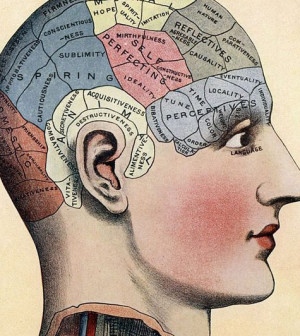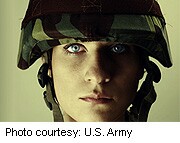- Could Artificial Sweeteners Be Aging the Brain Faster?
- Techniques for Soothing Your Nervous System
- Does the Water in Your House Smell Funny? Here’s Why
- Can a Daily Dose of Apple Cider Vinegar Actually Aid Weight Loss?
- 6 Health Beverages That Can Actually Spike Your Blood Sugar
- Treatment Options for Social Anxiety Disorder
- Understanding the Connection Between Anxiety and Depression
- How Daily Prunes Can Influence Cholesterol and Inflammation
- When to Take B12 for Better Absorption and Energy
- Epsom Salts: Health Benefits and Uses
Smell Test Helps Spot Brain Trauma in Combat Zones, Study Says


Testing soldiers’ sense of smell can help diagnose those with traumatic brain injury, a new study shows.
The findings suggest that doctors in combat zones could use smell tests to help identify soldiers who require immediate brain scans, thereby improving frontline care of those with blast injuries, the researchers said.
“Although it may seem far-fetched that the sense of smell can be used to identify a concealed brain injury, [impaired sense of smell] was commonly used by neurosurgeons in attempts to localize certain brain tumors prior to the use of advanced neuroimaging in the 1980s,” said study leader Dr. Michael Xydakis, an Air Force colonel and associate professor of surgery in the School of Medicine at the Uniformed Services University of the Health Sciences, in Bethesda, Md.
The study included 231 members of the U.S. military with combat injuries who were patients at Walter Reed National Military Medical Center. They were evaluated for traumatic brain injury and had their sense of smell tested.
All of those with irregular results on the smell test had abnormalities on brain scans, according to the findings published online recently in the journal Neurology.
The brain interprets smells by linking them to past memories. This process doesn’t work properly if a person is experiencing memory problems, the researchers explained.
“Getting a CT scan in a combat zone is often the equivalent distance of placing a soldier on a helicopter in Washington, D.C., and sending them to Boston. It requires a significant investment in personnel and aviation resources; not to mention flying troops over hostile terrain,” Xydakis said in a journal news release.
“Using abnormalities with the sensory systems has opened up an entirely new avenue of investigation for diagnosing brain injuries,” he added.
More information
The U.S. National Institute of Neurological Disorders and Stroke has more about traumatic brain injury.
Source: HealthDay
Copyright © 2026 HealthDay. All rights reserved.










